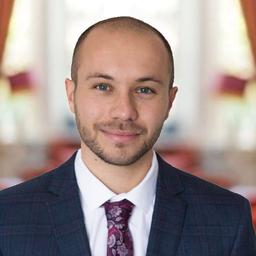Akoya Biosciences collaborates with leading cancer center to discover predictive biomarkers for cancer
University of California San Francisco (UCSF) uses Phenoptics™ platform to help with biomarker discovery
29 Jul 2020
Akoya Biosciences Inc., The Spatial Biology Company™, has announced a collaboration with UCSF Helen Diller Family Comprehensive Cancer Center. Scientists at UCSF Helen Diller Family Comprehensive Cancer Center have chosen Akoya’s Phenoptics™ multiplex immunofluorescence platform for developing predictive and prognostic biomarkers, particularly for use in selecting the most effective neoadjuvant and adjuvant immunotherapies for patients with early breast cancer.
At UCSF, this collaboration will be led by Michael Campbell, PhD, and Laura Esserman, MD, MBA. Dr. Campbell is an immunologist who has worked in partnership with Dr. Esserman to better understand how to optimize immunotherapy. He is driving the work on the Phenoptics platform to develop predictors of response to the immuno-oncology drug combinations, and to use these insights to develop more effective combinations. Together they are working both on high risk invasive breast cancer and high-risk ductal carcinoma in situ (DCIS).
Dr. Esserman is a professor in the departments of Surgery and Radiology who co-leads the breast oncology program at the UCSF Helen Diller Family Comprehensive Cancer Center, and is the Principal Investigator of the I-SPY Trials, sponsored by the Quantum Leap Healthcare Collaborative. Following extensive evaluation of biomarker testing methods, Dr. Esserman and her team have standardized biomarker discovery and development efforts on the Phenoptics platform to measure as many as six markers at a time on a single pathology slide using multiplex immunofluorescence. The Phenoptics platform is the chosen platform for the I-SPY Trials.
“There is a clear need for biomarkers to guide both the choice and assessment of immune targeted combinations for high risk early-stage cancers, where opportunities for cure are much greater,” said Dr. Esserman. “We believe that multiplexed immunofluorescence will lead to robust, predictive assays, because it enables better understanding of the cell-level biology underlying disease progression and response to therapy, by revealing the spatial arrangements and interactions of cells in the tumor microenvironment.”
Immunotherapies harness the immune system to fight cancer and are increasingly being used in the early high-risk setting. The partnership’s goals are to make these therapies more effective and to understand the immune response, key to making them work for more patients. There is an urgent need for biomarkers that more accurately predict which patients will respond to a particular therapy. Multiplex immunofluorescence preserves critical spatial data about cell proximity and interaction in the tumor microenvironment, with the potential to provide higher predictive power compared to other biomarker approaches. Akoya’s Phenoptics platform provides an end-to-end solution for discovery research and clinical trials with the reproducibility, sensitivity and throughput needed to develop new biomarkers and has become the standard for biomarker-based clinical trials and translational research.
Cliff Hoyt, Vice President of Translational and Scientific Affairs at Akoya, commented: “Dr. Esserman is well known for her substantial achievements in characterizing the tumor microenvironment and treating breast cancers and it is an honor for our team to collaborate with her lab. With Dr. Esserman’s focus on practical and effective steps to improve drug development and the standard of care, we believe that this collaboration will have a real impact on patient treatment in the coming years.”
The Phenoptics platform is intended for research use only.
About the I-SPY TRIALs
The I-SPY TRIAL (Investigation of Serial studies to Predict Your Therapeutic Response with Imaging And moLecular analysis) was designed to rapidly screen promising experimental treatments and identify those most effective in specific patient subgroups based on molecular characteristics (biomarker signatures). The trial is a unique collaborative effort by a consortium that includes the Food and Drug Administration (FDA), industry, patient advocates, philanthropic sponsors, and clinicians from more than 20 major U.S. cancer research centers. Under the terms of the collaboration agreement, Quantum Leap Healthcare Collaborative is the trial sponsor and manages all study operations.
Do you use Akoya Biosciences products in your lab? Write a review today for your chance to win a $400 Amazon Gift Card>>
